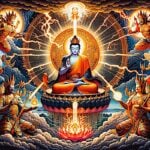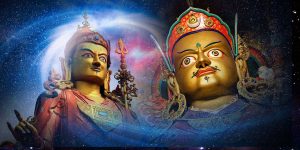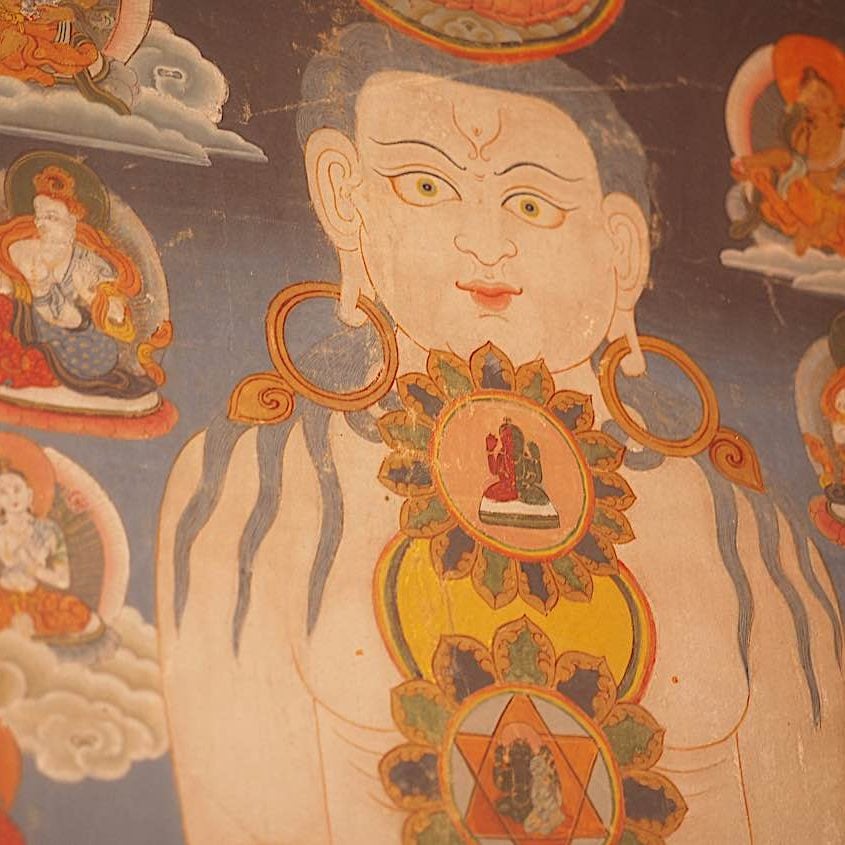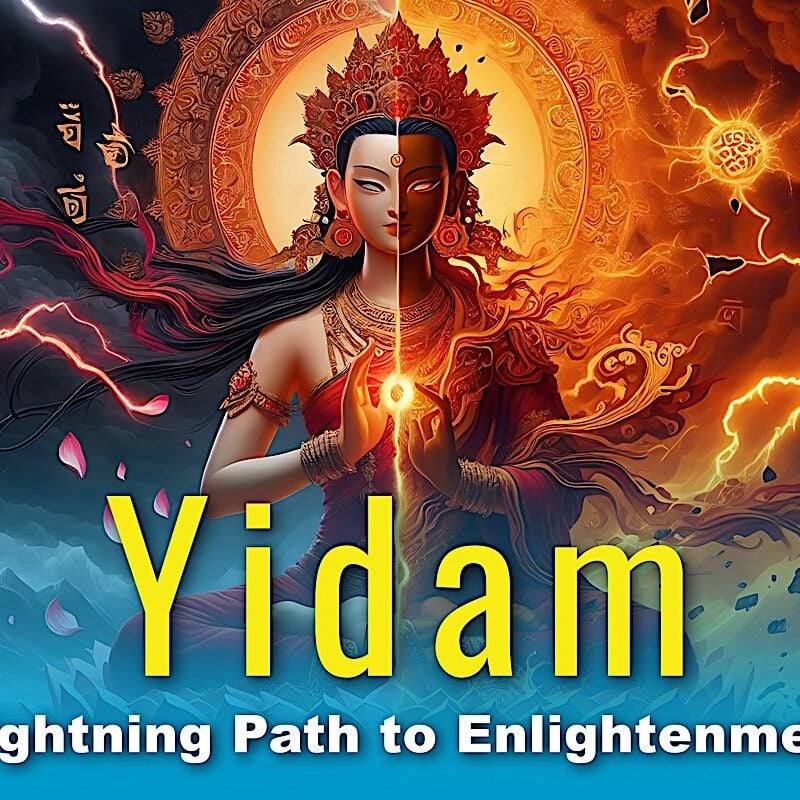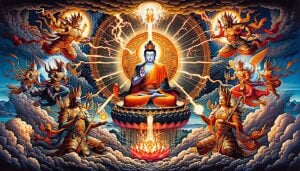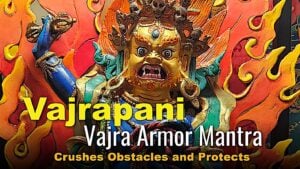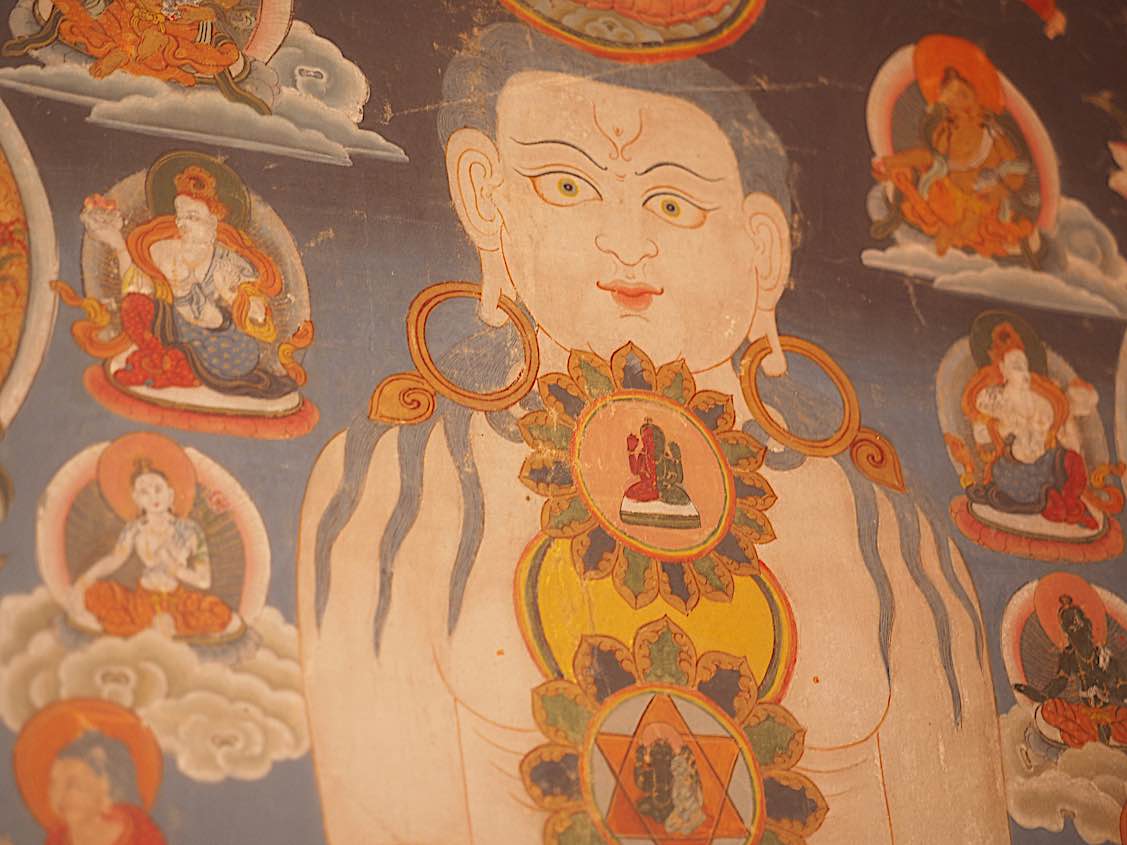Video: 10 Benefits of Vajrayogini practice & how to practice, chanting 8 praises by Yoko Dharma
Why do many Buddhist teachers describe Vajrayogini as the one practice for our busy, hectic, terrifying times which can lead us, in one lifetime, to Enlightenment? Why is Vajrayogini the Sarva Buddha Dakini — the Dakini who is the essence of all the Buddhas? What are the ten benefits of her practice? How can we practice Vajrayogini now, if we don’t yet have the empowerment and permission of a teacher? We answer these questions, and more, in our brief documentary on the great Dakini Queen Vajrayogini.
Full video (includes CC and subtitles in many languages!):
EVENT Note: a Special Empowerment and two-week initiation and retreat for Vajrayogini is scheduled at Tashi Choling with Venerable Zasep Rinpoche in April 29th to May 14th, 2023. Information here>>
At the end of this video, don’t miss the amazing Yoko Dharma chanting the glorious eight lines of praise to Vajrayogini in Sanskrit with beautiful meditative images.
Increasingly, modern life is almost too hectic for deep yogic practices that can lead to Enlightenment in one lifetime.
Today, most of us do not have the luxury of retiring to a cave for hermetic practice over many years.
Although all Buddhist practices potentially can lead to Enlightenment in one lifetime, Vajrayogini practice — above all others — is the one recommended by teachers for modern times.
Why?
Clarity and simplicity.
Brevity — yet a comprehensive practice.
Easy — yet advanced.
Her visualization is not difficult even for those who have trouble with visualizations.
Her practice is complete — containing all the 11 Yogas required to generate the Enlightened mind — yet can be accomplished in an astonishingly brief period of time.
Her practice doesn’t require “retiring from the world” — in fact, it is encouraged to use our “daily lives” as an opportunity to practice.
One of the 11 Yogas of Vajrayogini is the Yoga of Daily Activities.
Another is the Yoga of Sleeping.
There is even the Yoga of Awakening.
And the Yoga of Tasting Nectar — which we can combine with our morning breakfast.
In other words, our daily, modern lives become the practice!
The ten benefits of Vajrayogini practice are also highly appropriate in modern times. Whether you are concerned with the suffering of daily life, the stress of “making a living” or even health issues, Vajrayogini practice is helpful in these practical ways. It is also the ultimate advanced practice — a complete path to Enlightenment exemplified in the 11 Yogas of Vajrayogini.
More articles by this author
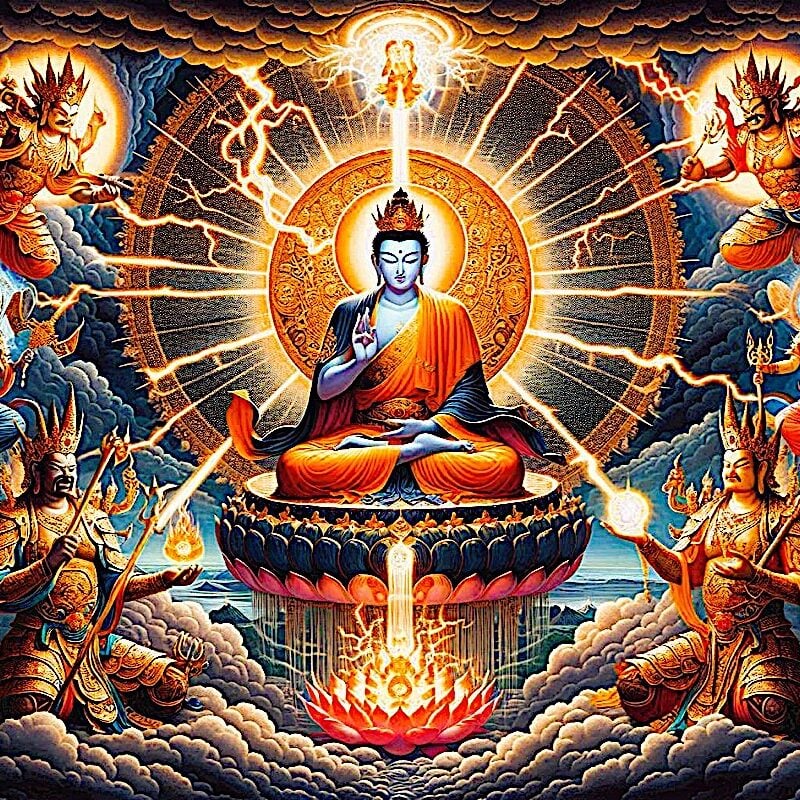
Protection from all Harm, Natural Disaster, Weather, Spirits, Evil, Ghosts, Demons, Obstacles: Golden Light Sutra: Chapter 14

SUPPORTING MEMBER VIDEO: Tara Windhorse – Buddhist Wish-Fulfilling Practice: the Mother of all Mantras, Chi, Wind and Prana

Guru Rinpoche is ready to answer and grant wishes: “Repeat this prayer continuously” for the granting of wishes

VIDEO: Vajrapani Vajra Armor Mantra: Supreme Protection of Dorje Godrab Vajrakavaca from Padmasambhava
Search
Latest Features
Please support the "Spread the Dharma" mission as one of our heroic Dharma Supporting Members, or with a one-time donation.
Please Help Support the “Spread the Dharma” Mission!

Be a part of the noble mission as a supporting member or a patron, or a volunteer contributor of content.
The power of Dharma to help sentient beings, in part, lies in ensuring access to Buddha’s precious Dharma — the mission of Buddha Weekly. We can’t do it without you!
A non-profit association since 2007, Buddha Weekly published many feature articles, videos, and, podcasts. Please consider supporting the mission to preserve and “Spread the Dharma." Your support as either a patron or a supporting member helps defray the high costs of producing quality Dharma content. Thank you! Learn more here, or become one of our super karma heroes on Patreon.
Lee Kane
Author | Buddha Weekly
Lee Kane is the editor of Buddha Weekly, since 2007. His main focuses as a writer are mindfulness techniques, meditation, Dharma and Sutra commentaries, Buddhist practices, international perspectives and traditions, Vajrayana, Mahayana, Zen. He also covers various events.
Lee also contributes as a writer to various other online magazines and blogs.




